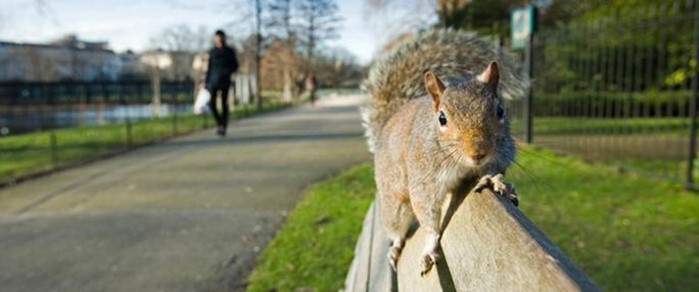Lead Supervisor: Patricia Brekke, Institute of Zoology
Email: Patricia.brekke@ioz.ac.uk
Co-supervisors: Manuela González Suárez, Ecology and Evolutionary Biology, University of Reading; Sarah Perkins, School of Biosciences, Cardiff University

As urban centres expand globally, wild animal populations become exposed to a range of new anthropogenic stressors, such as air, noise and light pollution which reduce immunocompetence and increase disease susceptibility. Urban areas are also the epicentre for the introduction invasive host species with the potential to carry zoonotic diseases. Invasive species, especially mammals, can increase zoonotic disease risk by increasing the abundance of existing pathogens and parasites as well as introducing new ones into the environment and facilitating transmission. However, the relationship between urban-related stress on invasive species immunocompetence and zoonotic disease risk is still not fully understood. In this studentship we will employ invasive Grey squirrel (Sciurus carolinensis) populations living across the urban-rural gradient in the UK to investigate the impact of urban stress on grey squirrel immunocompetence, ectoparasite burden and Lyme disease risk. We will specifically examine: (a) whether grey squirrel stress and immunocompetence markers and (b) spatial distribution and abundance of tick carrying Borrelia vary across the urbanisation gradient as well as (c) how parasite burden and Borrelia levels in grey squirrel populations vary with cofactors such as landscape connectivity, ecological community, host/human density, and climate change. This work will enable us to further understand the impact of urbanisation on zoonotic disease risk, the role of the invasive grey squirrel in the tick-borne Lyme disease dynamics and map tick-borne Lyme disease risk areas in the UK.
Training Opportunities
The student will be integrated into a vibrant conservation organisation, providing the opportunity to train in a range of field, sampling, laboratory and modelling skills. They will have access to a range of opportunities to apply and disseminate their research through our science communication and policy making teams as well directly inform conservation practice.
Student Profile
The candidate will have a BSc, and ideally a MSc, degree in ecology, veterinary science, zoology or related field and interest in conservation. They will have experience with quantitative and statistical methods as well as some field and/or animal handling experience.
Note: due to the nature of this project and to comply with visa regulations, only Home students should apply.
References
Chinchio, E., Crotta, M., Romeo, C., Drewe, J. A., Guitian, J., & Ferrari, N. (2020). Invasive alien species and disease risk: An open challenge in public and animal health. PLoS pathogens, 16(10), e1008922.
Gandy, S., Kilbride, E., Biek, R., Millins, C., & Gilbert, L. (2022). No net effect of host density on tick‐borne disease hazard due to opposing roles of vector amplification and pathogen dilution. Ecology and Evolution, 12(9), e9253.
Hansford, K. M., Fonville, M., Gillingham, E. L., Coipan, E. C., Pietzsch, M. E., Krawczyk, A. I., … & Medlock, J. M. (2017). Ticks and Borrelia in urban and peri-urban green space habitats in a city in southern England. Ticks and tick-borne diseases, 8(3), 353-361.
Medlock, J. M., Hansford, K. M., Vaux, A. G., Cull, B., Gillingham, E., & Leach, S. (2018). Assessment of the public health threats posed by vector-borne disease in the United Kingdom (UK). International Journal of Environmental Research and Public Health, 15(10), 2145.
Millins, C., Magierecka, A., Gilbert, L., Edoff, A., Brereton, A., Kilbride, E., … & Biek, R. (2015). An invasive mammal (the gray squirrel, Sciurus carolinensis) commonly hosts diverse and atypical genotypes of the zoonotic pathogen Borrelia burgdorferi sensu lato. Applied and Environmental Microbiology, 81(13), 4236-4245.
Olsthoorn, F., Sprong, H., Fonville, M., Rocchi, M., Medlock, J., Gilbert, L., & Ghazoul, J. (2021). Occurrence of tick-borne pathogens in questing Ixodes ricinus ticks from Wester Ross, Northwest Scotland. Parasites & Vectors, 14(1), 1-11.
Zhang, L., Rohr, J., Cui, R. et al. Biological invasions facilitate zoonotic disease emergences. Nat Communications 13, 1762 (2022). https://doi.org/10.1038/s41467-022-29378-2

